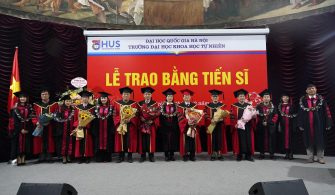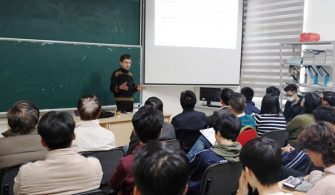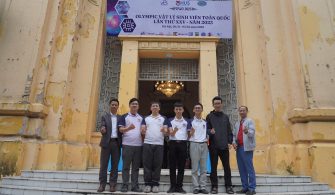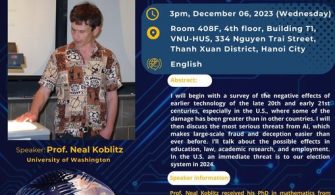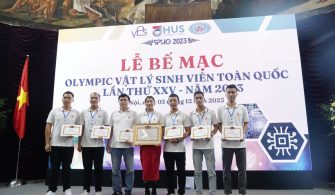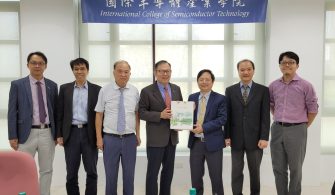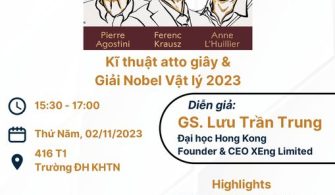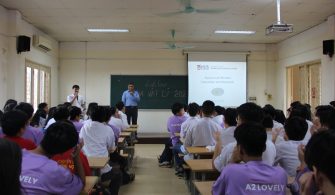Khoa Vật lý trân trọng kính mời quý vị đến dự seminar khoa học tháng 02/2018
Ngày: 08/02/2018 (Thứ 5)
Giờ: từ 2 giờ 00 chiều đến 3 giờ 00 chiều
Địa điểm: Phòng 408F, nhà T1, 334 Nguyễn Trãi
_____________________________________________
Speaker: Dr. Trinh Minh Tuan (Department of Electrical Engineering and Computer Science, the University of Michigan)
Title: Light-Matter Interaction in Nano-Materials for Optoelectronic Applications
Abstract:
Ultrafast spectroscopies have long been powerful tools for the understanding of novel chemical and physical dynamics such as quantum coherence, electronic and vibrational interaction, and dynamic relaxation in coupled quantum systems. An example includes, among others, a femtosecond transient absorption (fs-TA). In fs-TA, an energetic pulse (the “pump”) resonant with an electronic transition of the studied system creates an excited state; the subsequent temporal evolution of the system is monitored by measuring the transmission change of a delayed, weak pulse (the “probe”). In this talk, I will present the use of fs-TA for investigating quantum phenomena in nano-materials. The particular interest is singlet fission in organic conjugated molecules.
Singlet fission is a spin-allowed process which takes place in organic semiconductors whereby a photoexcited singlet exciton splits into two triplet excitons. By generating two excitons upon a single absorbed photon, SF has the potential to enhance power conversion efficiency of solar cells up to 44%, well exceeding the Shockley-Queisser limit of 31% for a single junction solar cell. As yet, highly efficient SF has only been found as inter-molecular SF, which requires an appropriate inter-molecular coupling. In photovoltaic applications, there remain fundamental challenges for SF: (i) there is a limited number of molecules that undergo SF and (ii) devices that exploit SF are confined to a bilayer architecture. Here, I present a new form and highly efficient singlet fission, intra-molecular SF, which takes place within a single molecule. In this case, the SF rate does not depend on the inter-molecular coupling, and extracting multiple excitons can be exploited in a bulk heterojunction.

